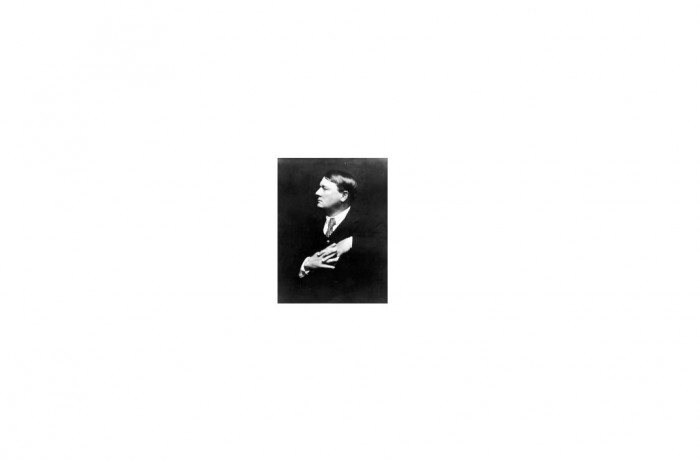Aflred & Harold Harmsworth
Alfred Harmsworth was born in Ireland in 1865, the son of an English barrister.
Educated in London, Alfred developed an interest in journalism when he began editing the school magazine. On leaving school, he worked for different magazines and then started Answers to Correspondents with his brother, Harold, in 1888. In 1894 they obtained their first newspaper, the Evening News. Just two years later, on 4 May 1896, Alfred launched The Daily Mail, since when it has been the flagship of the Daily Mail and General Trust. The paper was designed to have a wide appeal and soon became unrivalled in its field. It spearheaded Alfred’s revolutionary approach to newspapers, earning him the reputation as ‘The Father of Modern Journalism’.
Many of the British major national titles were started or acquired by Alfred, including, the Daily Mirror which started life as a newspaper for women in 1903 and stayed in the Group until 1947 when it was sold. In the same year the Weekly Dispatch was acquired and this later became the long-lived Sunday Dispatch. 1904 saw the first edition of the Overseas Mail, which in 1905 became the Continental Daily Mail. This was also the year when the Observer joined the group. In 1908 The Times was added to the portfolio and remained with Associated Newspapers until the death of Lord Northcliffe in 1922 when it was sold to John Jacob Astor.
In 1905 Alfred was made Viscount Northcliffe, the youngest ever created The Harmsworth connection with Newfoundland started the same year when Lord Northcliffe and Lord Rothermere investigated the possibility of building a paper mill there to provide a regular supply of paper for their newspapers in Britain. In 1907 they established the Anglo-Newfoundland Development Company at Grand Falls. Lord Northcliffe used his newspapers to promote inventions such as the telephone, electric light, photography, motor cars, power boats and aircraft. He ran competitions in the Daily Mail, including £1000 for the first flight across the Channel in 1906, which was won by Louis Bleriot and a £10,000 prize for the first successful flight from Manchester to London.
Before the outbreak of the 1st World War Northcliffe had warned of a pending war with Germany. During the early stages of the conflict he created controversy by advocating conscription and criticising Lord Kitchener. In 1915 he published an attack on the Secretary of State for War for ordering the wrong kind of shell. Overnight the circulation of the Daily Mail plummeted as this was considered treacherous, and he remarked, “It is better to lose circulation than the war.” In fact his actions were vindicated and he was proved correct.
As a result, in 1917 he was appointed by the new Prime Minister, Lloyd George, to head a mission to the United States to persuade them to join the war against the Germans. The ill health that had dogged Lord Northcliffe for some years caught up with him and he died in August 1922.
Harold Harmsworth, the son of an English barrister was born in 1868. Harold worked with his elder brother, Alfred, to publish Answers to Correspondents. He and Alfred purchased the Evening News in 1894 before founding the Daily Mail in 1896. It has been claimed that the partnership worked well because whilst Alfred had good journalistic skills, Harold was an impressive accountant. Harold became the 1st Viscount Rothermere of Hemsted in 1919.
During the First World War Lord Rothermere loyally supported the British government and in 1917 when Prime Minister Lloyd George established an airforce as a separate entity from the army and navy, he was made the first Secretary of State for Air with the specific aim of creating the Royal Air Force. Lord Rothermere lost two of his three sons, Vyvyan and Vere, in the War.
Although he resigned as Minister for Air after the War, he continued to support the RAF and in 1935 he paid for the development of the Bristol 142 which flew for the first time in 1935. Originally designed as a civil transport plane, it was converted into a bomber and renamed the Blenheim Bomber, the only light bomber in the RAF at the outset of the 2nd World War.
After the death of his brother Lord Northcliffe in 1922, he took full control of the Daily Mail, as well as the Daily Mirror. He also ran the Evening News, the Sunday Pictorial and the Sunday Dispatch. His newspapers continued to increase their circulation: by 1926 Daily Mail circulation sales had reached 2,000,000.
Lord Rothermere died in November 1940 and was succeeded by his son, Esmond who in 1952 became the first Chancellor of Memorial University of Newfoundland, establishing both the Rothermere scholarships and Rothermere House as the first oncampus student residence.

